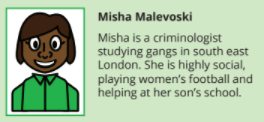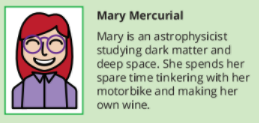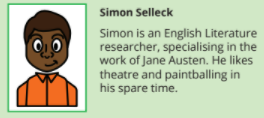And Sometime We Play Games
Reflections on "The Publishing Trap”
Our work at Ithaka S+R, such as through surveys of faculty and graduate students and targeted qualitative studies of scholars by discipline, has consistently uncovered scholars’ ambivalence to recent shifts in the scholarly communications landscape. While disciplinary publishing cultures vary, many of the ambivalences scholars report are held in common. For example, scholars in many fields struggle with choices around publishing in open access journals and making information available in institutional repositories, they often can’t secure funding for pursuing gold open access, and they express confusion around what academic social networking is and how it relates to other mechanisms for digitally storing and sharing research. Scholars in a wide variety of fields also believe that it is important to share insights from research with society-at-large but do not perceive that they have the skills or supports to communicate with the public themselves.
For these reasons we were excited to learn about The Publishing Trap, a board game created by UK Copyright Literacy, which aims to provide an entertaining education on scholarly communications. The game is geared towards graduate students, scholars, and others involved with academic publishing and research support. Teams, playing as up to four characters with diverse academic profiles, make strategic decisions about publishing choices for points as their characters advance through the stages of their academic careers. The points reflect the different kinds of rewards academic publishing can provide: money, impact, and knowledge.
In pursuit of our own edification and also fun, we tested the game out
These are the four characters whose academic publishing trajectories players must manage in teams.
How We Played
The Publishing Trap was played under the auspices of Ithaka S+R testing in two different ways. I led a session with what is intended to be the game’s core audience: graduate students. My fellow gamers included Sam Leutheusser, a first year PhD student in theoretical physics at MIT, Ariel Leutheusser, a second year PhD student in comparative literature at the CUNY graduate center, and Hanne Collins, a psychology lab researcher at Harvard who is exploring the possibility of pursuing a PhD in the near future.
I also led a second gaming session with Ithaka S+R employees: Cappy Bond Hill, Kimberly Lutz, Christine Wolff-Eisenberg, Katherine Daniel, and Roger Schonfeld.
Some Observations from our Playtime (spoilers ahead)
Both sessions of the play featured lively dialogue about the ramifications of scholarly publishing choices, thereby achieving the main aim of the game. The session with graduate students (and a potential future graduate student) achieved an effectively pedagogical focus by introducing the players to scholarly publishing issues relevant to them isuch as whether to embargo dissertations, when and how to deposit research into institutional repositories, and variations in creative commons licenses. The game’s cheeky tone led to much laughter throughout both sessions.
The Ithaka S+R session sparked lively debate on the lessons taught by the game, particularly pertaining to scholarly advancement. While the game seeks to demonstrate the ramifications of publishing choices (e.g. by how much money you earn, whether your work has impact, etc.), it is designed so that the competing characters always advance through the stages of academia together, by being hired together, promoted together, and retiring together, despite the differing choices they made along the way. We wondered what would happen if a game was designed where the players, through some combination of their choices and chance, lead to them floundering on the job market? Or getting stuck adjuncting? Or being denied tenure? Or towards pursuing an alt-academic career?
Perhaps most confusing to all of the players was some of the game’s twists. Most notably, calculating the points to determine the winner at the retirement stage involves disregarding the money points. While the game claims this is reasonable because “you can’t take it with you,” the players could not escape beyond the reality one must do precisely that in an era of eroding pensions.[1]
Concluding Thoughts
Both groups found The Publishing Trap to be a fun way to think through the often very un-fun world of scholarly publishing. There is potential for tweaking but overall the game is definitely worth trying out. An updated version with more differentiated career paths for the characters and more explanatory material about the rationale behind various outcomes could potentially lead to improvements.
The Publishing Trap especially has potential as a tool for those who seek to teach graduate students about scholarly communications (e.g. librarians) to engage with students in a creative way. From our limited sample, the game seems to work pretty well with players in various academic fields, so we see great promise in gathering together some students together from various departments to play with a librarian. Pizza not required but definitely recommended.
[1] Potentially more disturbing was getting the “wildcard” that “you are accused of having an affair with your PhD student. Your head of Department demands you explain,” with the outcome based on a dice roll, of whether “your reputation is salvaged as you explain you made a breakthrough in the field and you have managed to get a jointly authored article together. Gain one knowledge and one impact token” or “you are reprimanded and lose your position as Chair of the Research Committee. Lose 1 money token.” While it is certainly true that many professors have benefitted from the asymmetrical power balance through relationships with their students, we are not sure if it is appropriate for such a scenario to be presented through the humorous tone of this game.




Comments
Thank you for the heads up about the affair wildcard. The game seems to assume the affair is consensual. Given the recent spate of sexual harassment/assault charges in the US, I won't purchase the game while it includes that card. There are plenty of other ethics violations that could be used.
Hi Robin, It's definitely important to mindful of these issues. It may be helpful for me to also add here that the game is completely free and removing the particular wildcard in question would not impede playing in any way.
Thanks, Danielle! totally missed the 'open' aspect of the game.